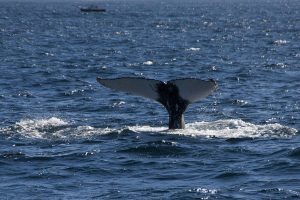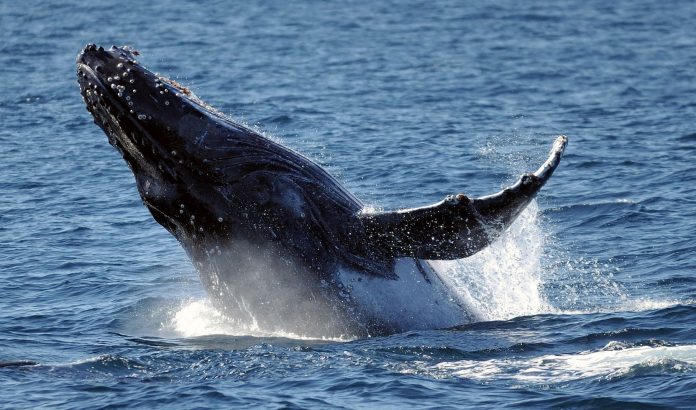It’s time for Sunshine Coast residents and visitors to keep their eyes peeled as humpback whales make their annual migration along the east coast.
More than 25,000 whales are expected to swim past Queensland from now until November as the whales travel from and return to the southern ocean.
Environment Minister Meaghan Scanlon said the migration provided a wonderful spectacle, but it had to be respected.
“Thanks in part to global efforts and efforts in Queensland to protect the environment – including an almost $1 billion investment by the Palaszczuk Government this year for the environment more broadly – we’ve seen whale numbers surge from just 200 in the 1960s to 25,000 now,” Ms Scanlon said.
“Whales will be here to calve and breed, so it’s important that you give them space.
“Our national parks are a great way to see the annual migration but also give them the room they need – it’s part of the reason why we’re investing more than $50 million to upgrade them.
Help keep independent and fair Sunshine Coast news coming by subscribing to our free daily news feed. All it requires is your name and email. See SUBSCRIBE at the top of this article
“For example, Hervey Bay, in the Great Sandy Marine Park, is a sheltered bay where whales can spend weeks between August and November with their young calves.
Ms Scanlon encouraged families over coming months to book accommodation right along the Queensland coast, experience local attractions and make time to see the whales along the coastlines of Queensland’s national parks.

“Not only is it a great way to spend time with the family – you’re also helping to inject more than $2.6 billion into the economy and support 17,240 jobs at a time when we need them most.”
Department of Environment and Science Senior Marine Scientist Dr Justin Meager urged boaties in particular to be wary of whales migrating and to be safe when heading out onto the water.
Humpbacks swim along the coast day and night at this time and can surface without warning, and are known to nudge boats and also to slap their tails when close to vessels, or leap out of the water when breaching.
Follow Sunshine Coast News on Facebook.
“Department of Environment and Science wildlife officers and marine park rangers will be out and about as the whales arrive in Queensland waters reminding recreational boaties and commercial tour operators that while wildlife watchers celebrate, it’s also a time for boaties to exercise great care.
“We want to protect these beautiful marine mammals, but we also want to protect our boaties – humpbacks are unpredictable, up to 40-tonne mammals and you don’t want to get in their way.”
Dr Meager said special regulations and restrictions applied when whales migrated, with details available at www.environment.des.qld.gov.au/wildlife/animals/discovering-wildlife/watching-marine-mammals/rules
Penalties apply for non-compliance.
Unfortunately, whale migrations also mean occasional whale strandings.
Stranded whales should be reported as soon as possible to the Department of Environment and Science on 1300 130 372.
If waiting for expert help to arrive to a stranded whale, people should take care of their own health and safety first, and not attempt to push a stranded whale back into the water. This adds to the whale’s distress and potentially places people in danger.





